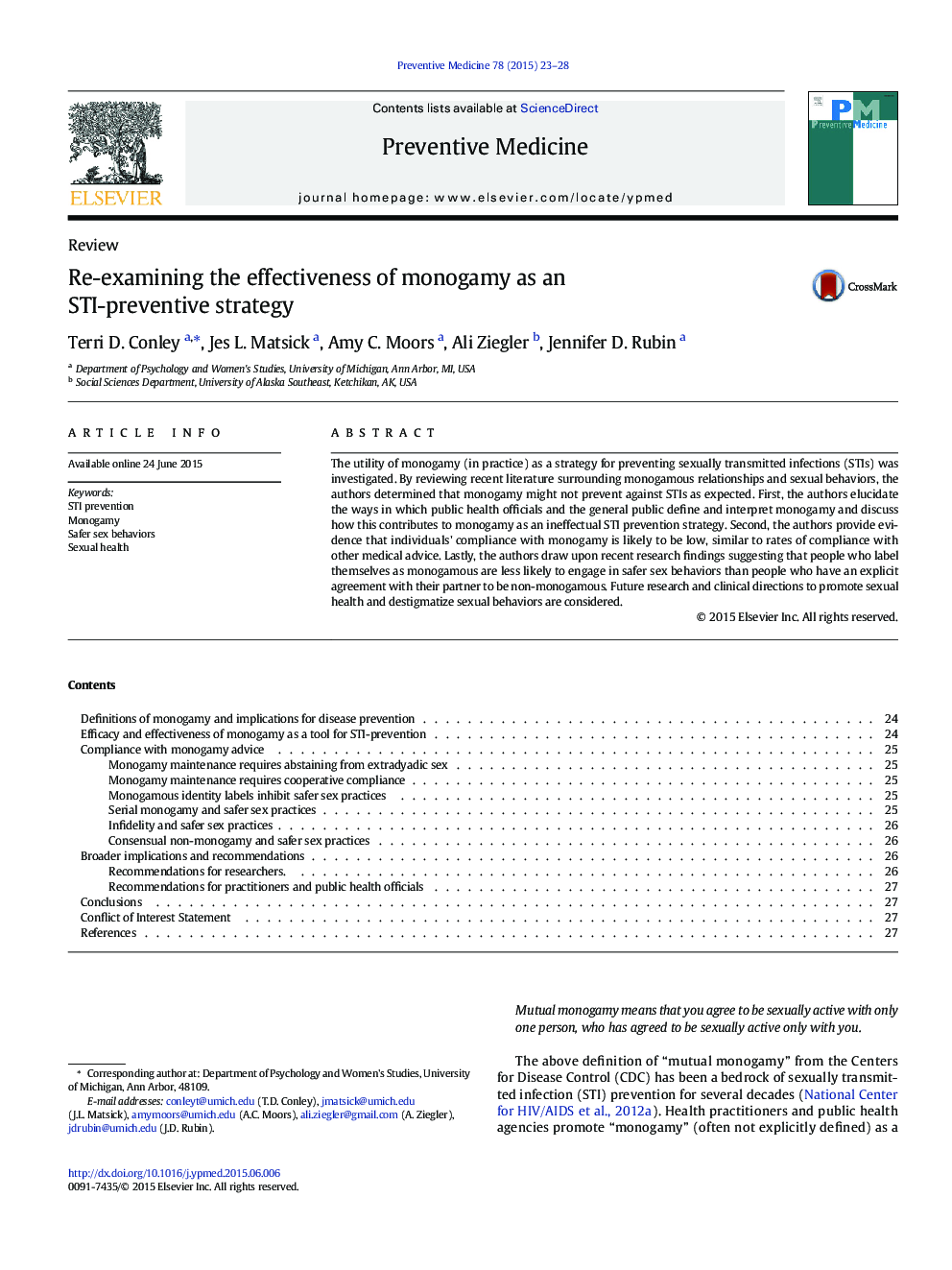| Article ID | Journal | Published Year | Pages | File Type |
|---|---|---|---|---|
| 3100401 | Preventive Medicine | 2015 | 6 Pages |
•Monogamy is perceived and promoted as a way to curb STI transmission.•We review empirical findings to evaluate whether monogamy prevents STIs.•There are compliance and definitional issues with monogamy.•Relationship status cannot determine which patients are at risk for STIs.
The utility of monogamy (in practice) as a strategy for preventing sexually transmitted infections (STIs) was investigated. By reviewing recent literature surrounding monogamous relationships and sexual behaviors, the authors determined that monogamy might not prevent against STIs as expected. First, the authors elucidate the ways in which public health officials and the general public define and interpret monogamy and discuss how this contributes to monogamy as an ineffectual STI prevention strategy. Second, the authors provide evidence that individuals' compliance with monogamy is likely to be low, similar to rates of compliance with other medical advice. Lastly, the authors draw upon recent research findings suggesting that people who label themselves as monogamous are less likely to engage in safer sex behaviors than people who have an explicit agreement with their partner to be non-monogamous. Future research and clinical directions to promote sexual health and destigmatize sexual behaviors are considered.
